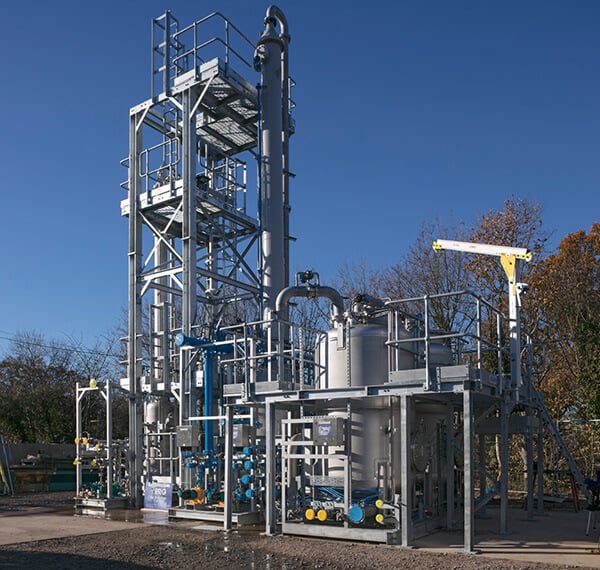[ad_1]
Images Courtesy of ERG Air Pollution Control
Businesses have a crucial role to play in the adoption of clean energy solutions. However, a vast majority are unaware of the changes they can make to help the environment.
RELATED ARTICLE: CREATING A GREEN OFFICE ENVIRONMENT IS EASY
The climate crisis is becoming an ever-increasing concern globally. Therefore, the pressure is on for businesses and consumers alike to seek out low-carbon solutions. However, according to a recent survey published by the British Chambers of Commerce, only one in every ten businesses is aware of their carbon footprint. Moreover, only one in seven is setting targets to reduce their carbon emissions.
Businesses have a crucial role to play in the adoption of solutions that help the environment. However, a vast majority are unaware of the changes they can make. So what is clean energy, and how can it benefit your business?
What Is Clean Energy?
The term “clean energy” refers to sources of energy that do not result in the addition of pollutants to the environment.
For example, the burning of fossil fuels is responsible for the introduction of greenhouse gases. Additionally, they introduce PM2.5, which are particles smaller than 2.5 micrometers. These particles contribute to respiratory illnesses and heart disease in densely populated areas.
On the other hand, clean energy sources such as solar panels, wind farms, and hydro-electric dams produce no such pollutants. These cleaner sources of power are becoming more and more viable. In fact, now even domestic households can choose clean energy providers.
Benefits of Clean Energy
Adopting renewable energy sources has the benefit of reducing the amount of air pollution created by fossil fuels. It also has marked benefits in other fields.
The fuels we currently rely on for the majority of our power are, by definition, a finite resource. They also present considerable difficulties in efforts to procure them. A shift to renewable energy sources such as wind and solar negate the supply chain issues inherent to importing petroleum. This leads to a steadier supply of energy and limited possibility of trade-related shortages.
Learn How to Implement Solutions
There are many different angles from which a business can implement clean energy solutions. In the process, it will naturally reduce its carbon footprint. These solutions can be as simple as setting up incentives for employee car-sharing or a cycle-to-work scheme. Either of these ideas would reduce fuel use across the workforce.
RELATED ARTICLE: ECO-FRIENDLY TRANSPORTATION TECHNOLOGIES OF THE NEAR FUTURE
Conversely, they can be as involved as installing gas-cleaning systems to reduce air pollutants created by factory processes. If your business is entirely office-based, switching your business’s energy provider to a clean energy provider such as Ecotricity or Green Energy can go a long way to reducing your carbon footprint.

Businesses Can Help Preserve Quality of Life on Planet Earth While Creating Sustainable Jobs
The sheer importance of clean energy cannot be overstated. In fact, the IPCC warns that current and future changes to our climate may be irreversible. Yearly PM2.5-related deaths could begin to exceed those caused by tobacco.
There is no time like the present to join in fighting the climate crisis. And clean energy solutions are the best possible way to preserve our quality of life and create sustainable jobs in the process.
RELATED ARTICLE: 5 SMART OFFICE CLEANING TIPS AND TRICKS
[ad_2]
Source link
Leave a Reply